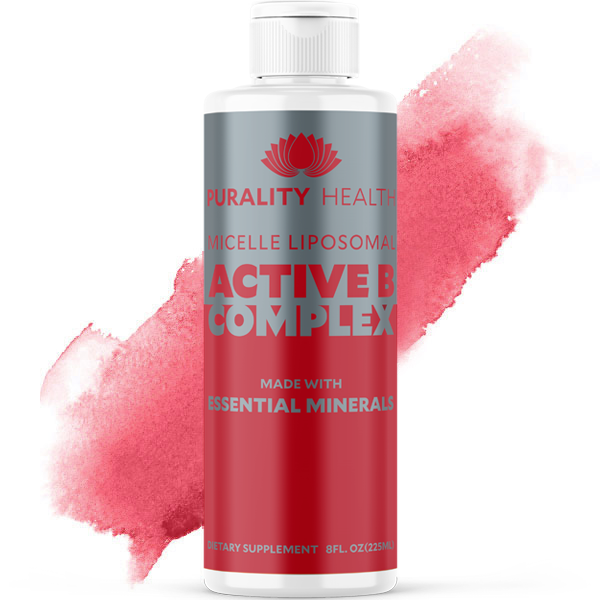The 7 Most Important Electrolytes (And How They Benefit Your Health)

Electrolytes are types of minerals that play an important role in regulating bodily functions. Essential for human health, there are several different types of electrolytes, and each one plays an important role in our bodies.
In today’s blog post, we will discuss the seven most important electrolytes and how they can benefit your health. We’ll also look at some of the signs that you may be deficient in certain electrolytes. So without further ado, let’s get started!
The seven most important electrolytes are:
1. Sodium
Sodium is one of the most important electrolytes in the body. It helps to control blood pressure and fluid balance, and it plays a role in muscle function and nerve communication. Sodium can also help reduce the risk of heart disease and stroke. In addition, sodium is essential for proper hydration, and it can help improve absorption of other nutrients.
If you are sodium deficient, you may experience fatigue, muscle cramps, and headaches. You may also have trouble regulating your body temperature.
To get enough sodium, eat foods that are high in sodium such as table salt, soy sauce, and pickles. You can also take a sodium supplement.
The recommended daily intake of sodium is 2300 mg. Anything higher can be detrimental to health, so it is important to consume sodium in moderation.
If you have high blood pressure, heart disease, or kidney disease, you should talk to your doctor before increasing your sodium intake.
Summary: Sodium is an essential electrolyte that has many benefits for health. However, it is important to consume sodium in moderation to avoid potential negative effects on health.
2. Potassium
Potassium is an electrolyte that helps to control blood pressure and heart function. It also aids in muscle contraction and nerve function. Potassium can be found in many foods, such as fruits, vegetables, meat, and dairy products.
If you are potassium deficient, you may experience fatigue, muscle weakness, and cramps. You may also have trouble regulating your blood pressure and heart rate.
To get enough potassium, eat high potassium foods such as bananas, sweet potatoes, and spinach. You can also take a potassium supplement.
The recommended daily intake of potassium is 4700 mg.
Summary: Potassium is an important electrolyte for overall health. It helps to control many crucial functions throughout the body, mostly related to muscles and nerves.
3. Calcium
Calcium is essential for bone health. Like potassium, it also plays a role in muscle function, nerve function, and blood clotting. Calcium can be found in many foods, such as dairy products, leafy green vegetables, and nuts.
If you are calcium deficient, you may experience fatigue, muscle cramps, and can even be at risk of developing osteoporosis. Other symptoms include having trouble regulating your blood pressure and heartbeat.
To get enough calcium, eat calcium-rich foods such as milk, cheese, and yogurt. You can also take a calcium supplement.
The recommended daily intake of calcium is 1000 mg.
Summary: Calcium helps to maintain bone health and plays a role in muscle function, nerve function, and blood clotting.
 4. Magnesium
4. Magnesium
Magnesium plays a role in over 300 biochemical reactions in the body. It helps to regulate blood pressure, muscle function, and nerve function. Magnesium can be found in many foods, such as leafy green vegetables, nuts, and seeds.
If you are magnesium deficient, you may experience fatigue, muscle cramps, and anxiety. If you are low on magnesium, you are also more likely to have trouble regulating your blood sugar levels.
To get enough magnesium, eat foods that are high in magnesium such as spinach, almonds, and cashews. You can also take a magnesium supplement.
The recommended daily intake of magnesium is 400 mg.
Summary: Magnesium is an important electrolyte which plays a role in over 300 biochemical reactions in the body, helping to regulate blood pressure, muscle function, nerve function, and more.
5. Chloride
Chloride is an electrolyte that helps to maintain fluid balance by regulating the amount of water in the body. It also helps to keep the body’s acid-base balance stable.
Additionally, chloride plays a role in muscle function. It can be found in many foods, including celery, seaweed, and olives.
If you are chloride deficient, you may experience fatigue, muscle weakness, and irregular heartbeat.
To get enough chloride, consume more celery, lettuce, seaweed, or olives.
The recommended daily intake of chloride is 2300 mg.
Summary: Chloride helps to maintain fluid balance in the body and plays a role in muscle function and acid-base balance.
6. Phosphorus
Phosphorus can help you build strong bones and teeth. It also plays a role in energy metabolism and cell function. Phosphorus can be found in many foods, such as dairy products, meat, and eggs.
If you are phosphorus deficient, you may experience bone loss, joint pain, and muscle weakness. You may also have trouble regulating your blood sugar levels.
To get enough phosphorus, consume milk, cheese, and yogurt. Or consider taking a phosphorus supplement.
The recommended daily intake of phosphorus is 700 mg.
Summary: Phosphorus helps to build strong bones and teeth, and plays a role in energy metabolism and cell function. Dairy products, meat, and nuts are all high in phosphorus.
7. Sulfur
Sulfur can also help you form strong bones, but also healthy muscles. On top of that, it plays a role in energy metabolism and detoxification. Sulfur can be found in many foods, such as garlic, onions, and eggs.
If you are sulfur deficient, you could be feeling chronic fatigue, muscle weakness, and joint pain.
The recommended daily intake of sulfur is 1000 mg.
Summary: To support bone and muscle health, ensure you’re getting enough sulfur. You can do so by consuming garlic, onions, and eggs. You can also take a sulfur supplement.
Who needs electrolytes the most?
Everyone needs electrolytes to maintain health, but some people may need more of them than others.
It’s no mistake that sports drinks are packed with electrolytes. People who are physically active and sweat a lot, like athletes, need electrolytes to replace the ones they lose through sweat.
Electrolytes are also important for people who have diarrhea or are frequently vomiting, which can cause them to lose a higher amount of fluids and electrolytes. Additionally, people who have certain medical conditions, such as kidney disease or heart problems, could benefit from additional electrolytes.
Essentially, if you’re doing anything that causes you to lose more fluids than usual, you should consider ways to take in higher levels of electrolytes so that your body can maintain proper hydration.
The bottom line
As you can see, electrolytes are crucial for many aspects of human health.
Without these minerals, problems can quickly arise in many areas of your health, but particularly with muscles, nerves, and the cardiovascular system.
Our Active B Complex contains four electrolytes that you learned about here today – all in a highly absorbable form.
Also included in the formula are 13 other crucial nutrients!















 4. Magnesium
4. Magnesium
